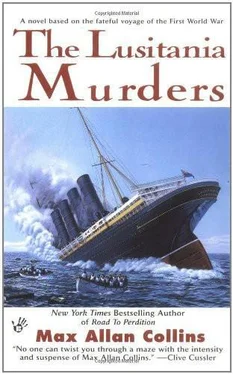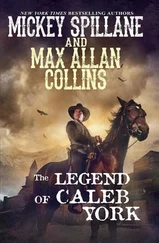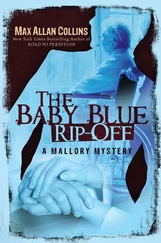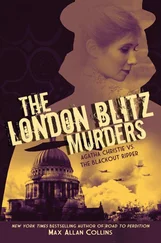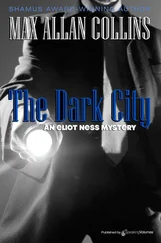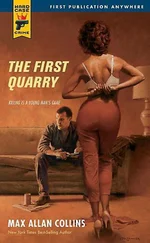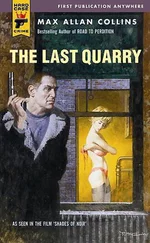Max Collins - The Lusitania Murders
Здесь есть возможность читать онлайн «Max Collins - The Lusitania Murders» весь текст электронной книги совершенно бесплатно (целиком полную версию без сокращений). В некоторых случаях можно слушать аудио, скачать через торрент в формате fb2 и присутствует краткое содержание. Жанр: Криминальный детектив, на английском языке. Описание произведения, (предисловие) а так же отзывы посетителей доступны на портале библиотеки ЛибКат.
- Название:The Lusitania Murders
- Автор:
- Жанр:
- Год:неизвестен
- ISBN:нет данных
- Рейтинг книги:3 / 5. Голосов: 1
-
Избранное:Добавить в избранное
- Отзывы:
-
Ваша оценка:
- 60
- 1
- 2
- 3
- 4
- 5
The Lusitania Murders: краткое содержание, описание и аннотация
Предлагаем к чтению аннотацию, описание, краткое содержание или предисловие (зависит от того, что написал сам автор книги «The Lusitania Murders»). Если вы не нашли необходимую информацию о книге — напишите в комментариях, мы постараемся отыскать её.
The Lusitania Murders — читать онлайн бесплатно полную книгу (весь текст) целиком
Ниже представлен текст книги, разбитый по страницам. Система сохранения места последней прочитанной страницы, позволяет с удобством читать онлайн бесплатно книгу «The Lusitania Murders», без необходимости каждый раз заново искать на чём Вы остановились. Поставьте закладку, и сможете в любой момент перейти на страницу, на которой закончили чтение.
Интервал:
Закладка:
. . as did our best course of action, which most certainly was not to present our findings to the two captains.
Instead, we would go to the two parties-that is, cocktail parties, thrown by Frohman and Kessler, tomorrow evening. She would go to one, and I would go to the other.
And before the final concert of the voyage, we would have our thief. . our murderer. . our answer.
By Thursday morning, when Miss Vance and I were strolling the Boat Deck’s open-air promenade, the Lusitania had experienced a change, however subtle. During the night, the ship had crossed into the war zone, signalling new precautions-we could see that the lifeboats had been swung out in their davits; and stewards were rigging more elaborate blackout curtains over doors and port-holes.*
Visibility was splendid, and the morning foretold a day as lovely as the previous several-sunshine, cool breezes, with the promise of a crisp evening. By the time evening arrived, however, I admit my nerves were on edge. We had spent the day in typical shipboard tomfoolery-food and strolls and even some time behind closed doors. But the task ahead was one for which a Pinkerton operative-even one as beautiful and feminine as Miss Vance-was far better suited than a man of letters.
Both cocktail parties began at six P.M. Approximately ten minutes past that hour, I dropped Miss Vance off at the Verandah Cafe, where Kessler was entertaining in the cool, open air, dusk painting the sea a shadowy shade of blue. Among the attendees were ship-builder Fred Gauntlett, the would-be nautical expert Charles Lauriat, the paranormal enthusiast Miss Pope and her young Friend, and several dozen others, most notably Madame DePage and her shipboard companion, Dr. Houghton.
Staff Captain Anderson had dropped by to represent the officers of the ship-Kessler was still giving him a bad time about the lifeboat drills-and I nodded hello to him. I scattered a bit of small talk around the cafe for perhaps five minutes, making sure to shake the Champagne King’s hand and thank him for the invite.
Miss Vance positioned herself near the bar, where we knew she would have easy access to the telephone.
“Good luck to us,” I said, and kissed her cheek, boldly.
Her eyes were glittering again. “Good luck to us,” she repeated.
I paused, my hand on her arm. “You love this, don’t you?”
Her smile was as enchanting as it was wide, the breeze catching the dark blonde tendrils and doing wonderful acrobatics with them. “Very much. . It’s better than opening night.”
Five minutes later, I was a floor below, on the starboard side of the Promenade Deck, in a suite where Charles Frohman was entertaining a slightly larger, even more star-studded group. The chubby frog prince of Broadway beamed as he moved throughout the crowd, leaning on his “wife” (that ever-present cane of his), seeming in less pain than before. The genial host was decked out in a dark suit with scarlet tie under a stiff white collar-formality and theatricality at once, a Napoleonic ring on his little finger to add a dash of Broadway flamboyance.
Everyone was dressed for dinner-men in formal wear, women in decollete gowns-but few were likely to bother with the dining saloon this evening: Generous trays of canapes were on the occasional tables, and Frohman’s girlish man William (as if having to keep track of Master-at-Arms Williams and Charles Williamson weren’t enough!) continually threaded through the room keeping Champagne glasses brimming. And the Champagne saw to it that the drawing room stayed alive with laughter and banter.
Vanderbilt and Williamson stood sipping Champagne, but the millionaire seemed gloomy, in the aftermath of his friend’s death, if not outright depressed. The art dealer was talking to everyone who happened by, full of personality, as if feeling the need to make up for his subdued friend.
Among the well-dressed, even glamorous crowd were Frohman’s theatrical entourage, including the actresses Josephine Brandell and Rita Jolivet, and the playwright Justus Miles Forman. In the midst of these fashionably dressed guests, an oasis of gauche, were the Bard of East Aurora and his bride; Hubbard was his usual floppy-tied self, in a tuxedo no respectable rental firm would let; his wife looked modestly attractive in an off-white silk gown appropriate for a wedding, circa 1900.
Right now Hubbard had found his way over to Williamson and Vanderbilt. The millionaire was staring into space, sipping his Champagne; but-judging by the snippet I heard-the art dealer had engaged Fra Albertus in a discussion of their common interest.
“You must not over-intellectualize art,” Hubbard was saying, and it frightened me to hear that view, because I agreed with it. “There is in most souls a hunger for beauty, just as there is a physical hunger.”
“But art is an intellectual process, too,” Williamson argued. “It must engage the mind as well as the heart.”
Hubbard shook his head. “Beauty speaks to the spirit through our senses-harmony as set forth in color, form and sweet sounds.”
“Art is a more complex thing than that, surely!”
The bard snorted a laugh. “Art is not a ‘thing’-it is a way.”
Back to aphorisms-but that, I had to admit, was a pretty good one.
I moved on, and suddenly I was facing my smiling host-homely as he was, his good nature made him appealing. “And where is your lovely friend. .Miss Vance?”
“She is, I’m afraid, representing us at the Kessler affair.”
“Well, I hope she’ll stop by and eat some of my food, and drink some of my Champagne.”
I smiled. “If Kessler doesn’t fill up his guests with bubbly, something’s wrong.”
“True enough,” he laughed. “Now, I want to make sure Miss Vance knows my interest in her thespian abilities is quite sincere. Will you be staying in London for a while?”
I shrugged. “Perhaps a week.”
“Splendid. I would like you and Miss Vance to be my guests, and accompany me to James Barrie’s new play, Rosy Rapture, at the Duke of York’s Theatre, Saturday evening.”
“Mr. Frohman, that’s very generous!”
He raised a small chubby forefinger. “None of that-C.F., remember. C.F.!”
“Well, C.F., I accept your gracious invitation on both our parts.”
Before long I had managed to reach my goal-I meant to position myself near the desk, where the phone hid behind that enormous ship-shaped basket of flowers and fruit. Those flowers were doing fairly well, for as many days as had passed; I noted the card was signed by Maude Adams, the famous actress Frohman had discovered.
I nibbled canapes, but didn’t overdo the Champagne, chatting with whomever happened by. There was a great deal of war talk. . fairly optimistic, however: Allied advances on the Western front and in the Dardanelles, with the prospect of Italy joining the Allied cause.
Captain Turner himself came by, in a rare sociable mood. Several guests asked him about the new shipboard precautions-everyone had noticed them-and Frohman asked, “Are we in any danger, Captain?”
“In wartime there’s always danger,” Turner said. “But no cause for alarm. . I would request that those gentlemen who are fond of cigars refrain from lighting them on deck.”
Whether that was intended as a joke or not, it got a laugh that rippled across the suite, just as a bellboy was entering, to hand the captain a wireless message.* Turner bid some hasty good-byes and took his leave.
Shortly afterward, Williamson took his leave as well, thanking Frohman, saying he needed to drop by the Kessler party, out of politeness; C.F. understood. And Vanderbilt was left behind, with his Champagne and his doldrums.
“This war,” Hubbard was saying, a group of theatrical types gathering around a ham greater than themselves, “will progress from horror to horror. . Art, science, invention, man has lifted himself to the Matterhorn of Hope. . and now this.”
Читать дальшеИнтервал:
Закладка:
Похожие книги на «The Lusitania Murders»
Представляем Вашему вниманию похожие книги на «The Lusitania Murders» списком для выбора. Мы отобрали схожую по названию и смыслу литературу в надежде предоставить читателям больше вариантов отыскать новые, интересные, ещё непрочитанные произведения.
Обсуждение, отзывы о книге «The Lusitania Murders» и просто собственные мнения читателей. Оставьте ваши комментарии, напишите, что Вы думаете о произведении, его смысле или главных героях. Укажите что конкретно понравилось, а что нет, и почему Вы так считаете.
